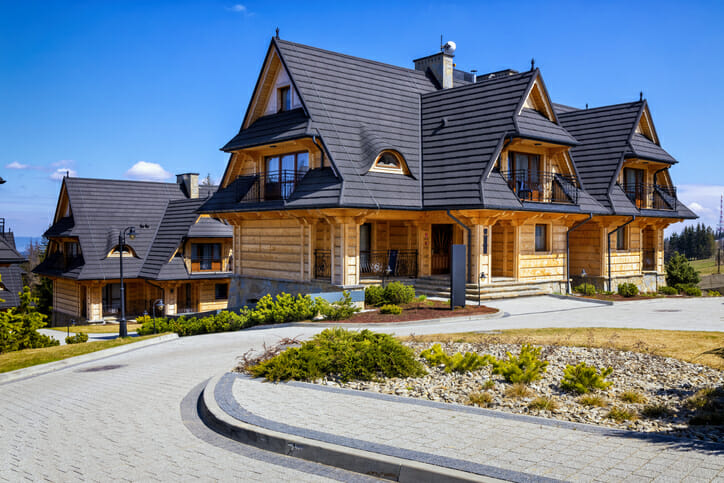Buying a home can be challenging, especially when it’s a seller’s market. Rising home values, paired with rising interest rates can influence how much home you can afford. If you’re ready to buy but are worried about finding a property that’s within your budget, you might try house hacking to save money. There are different ways to hack housing to keep the costs of homeownership in check.
A financial advisor could help you create a financial plan for your home buying needs and goals.
What Is House Hacking?
House hacking means finding ways to leverage an income from your home that you can then use to pay down your mortgage or cover other expenses associated with homeownership. The idea behind house hacking isn’t necessarily new but it’s become more popular in recent years thanks to rising home prices.
There are different house hacking strategies you can apply but the end goal is usually the same: making money from a property you own. Depending on which “hack” you’re using, you may be able to produce enough income to cover your entire mortgage payment or a large chunk of it. That can drastically reduce what you pay out of pocket to own and maintain a home.
House hacking is often appealing to first-time buyers who are concerned about getting priced out of the market. But investors can also try their hands at house hacking to create consistent rental income.
How Does House Hacking Work?
House hacking works by allowing a homeowner or investor to generate cash flow from a property they own. The homeowner or investor can then put that money back into the property by paying down the mortgage or using that cash to make improvements that boost the home’s value.
In terms of what house hacking looks like in action, there’s more than one way to do it. Some of the most popular ways to hack housing include:
- Multifamily properties. Instead of buying a single-family home, you could buy a duplex, triplex or quadplex instead. You can hack your housing by living in one of the units and renting the other ones out to create rental income.
- Short-term rentals. Renting out a room in your home is another way to hack housing if you don’t own a multifamily property. The short-term rental market is hot, thanks to Airbnb and VRBO, which make this type of housing more accessible.
- Shared housing. Another house hack involves sharing a single-family home with someone else. For example, you might buy a home jointly with friends. Or you might purchase a home, then take on one or more roommates to split costs.
- Renting out secondary properties. If your property has a detached garage with a mother-in-law suite, guest house, pool house or another separate housing structure you might consider renting it out for income.
- Rent vacant space. House hacking doesn’t have to be exclusive to the home itself. You can also hack your property by renting out your driveway or vacant land to people who need a spot to park their boats, RVs or extra cars.
It’s even possible to hack housing if you don’t own a home. For example, the landlord might be willing to cut you a break on rent if you agree to handle basic maintenance and upkeep or lawn care yourself. Or if you’re living a digital nomad lifestyle, you could become a professional couch surfer and get paid to house-sit. This is a form of geographic arbitrage.
Benefits of House Hacking

Choosing an alternative path to homeownership isn’t right for everyone. But if you’re open to the idea of house hacking, there are some upsides to consider.
One of the biggest benefits is the potential savings you might enjoy if you’re able to turn your home into a source of income. Depending on which house hacking strategy you apply, you may be able to generate enough money to pay all or most of your mortgage payments. That could significantly reduce your monthly outflows, leaving you with more money to pay down debt, save and invest.
You can also build equity faster if the income the property generates is enough to allow you to pay more than the regular mortgage payment each month. That could work in your favor later if you decide to sell the home and demand for housing is strong.
If you’re primarily interested in house hacking as an entry to real estate investing, it’s possible to buy a property with a smaller down payment, depending on how you decide to finance the purchase. For example, it’s possible to get an FHA loan for a multifamily home with as little as 3.5% down. That means less cash you have to produce out of pocket for a down payment.
You generally have to report rental income on your taxes but you can claim certain tax deductions to offset the amount of income that’s subject to tax. For example, you can deduct things like repair costs, advertising fees and depreciation expenses for the part of the home that’s used as a rental.
How to Get Started With House Hacking
Buying a home that you plan to hack requires some research and planning just like any other property purchase. Whether you’re interested in buying a single-family home and renting out a room or getting a multifamily home that you can live in, the process for getting started is similar.
- Clarify your goals. Before you begin looking at properties, ask yourself what you hope to accomplish with house hacking. If you know, for example, that you want to generate a certain amount of income each month that can influence the rest of your decision-making.
- Compare mortgage options. There are different types of loans you can use to buy a home, including conventional mortgages, FHA loans and VA loans. Each one has its own credit score and down payment requirements so it’s important to understand what options you have for borrowing.
- Find an agent or broker. A trusted real estate agent or broker can be invaluable for helping you find the right property to hack. They can fill you in on the details of a particular area and help you determine what a reasonable offer should be once you find a property you’re interested in.
- Estimate your income potential. Once you find a home that you like, it’s helpful to do a little math. For example, you can use an online mortgage calculator to estimate your monthly payments. You can then compare that to rental rates in the area to determine how much profit you might be able to make.
As mentioned, your agent can guide you through the process of making an offer and a counteroffer, if necessary. Getting pre-approved for a mortgage could give you an edge over other buyers if you’re in danger of getting caught in a bidding war.
If your offer is accepted, the next steps are fairly straightforward. You’ll need to apply for a mortgage and provide any documentation the lender requests. Once the loan is approved you can prepare to close. That means signing all of the appropriate and handing over funds for the down payment and closing costs.
The last step is finding one or more renters for the property. When screening tenants, consider performing a credit check and background check. And you might have an attorney help with drawing up a valid lease agreement to avoid any legal headaches that could arise.
Bottom Line

House hacking could make sense for you if you want to own a home and want to find ways to save on housing costs. Before venturing it, it’s important to understand what options you have for financing a property and how much your costs will be. Having a contingency plan for covering mortgage payments in case rental income dries up can also help you protect your investment.
Tips on Real Estate
- Consider talking to your financial advisor about the pros and cons of house hacking and whether it might be right for you. If you don’t have a financial advisor yet, finding one doesn’t have to be complicated. SmartAsset’s free tool matches you with up to three financial advisors who serve your area, and you can interview your advisor matches at no cost to decide which one is right for you. If you’re ready to find an advisor who can help you achieve your financial goals, get started now.
- When planning your home buying budget, remember to consider more than just the monthly mortgage costs. Maintenance, repairs and upkeep can cost several hundred to several thousand dollars a year, depending on the age and condition of the home. Also, keep in mind that transitioning from renting to owning may affect other costs, such as your utility bills.
Photo credit:©iStock.com/ewg3D, ©iStock.com/PeopleImages, ©iStock.com/PrathanChorruangsak
